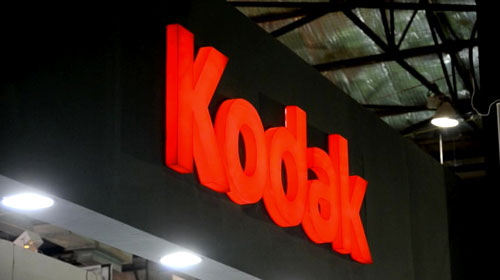While the file for bankruptcy came as a shock for consumers at large, Kodak India released a press release in order make some damage control to the rumours stockpiling in India about its operations. We spoke to the company exclusively on its ongoing strategic review process and drive to rapidly improve profitability. The company will focus its Consumer Business on Personal & Professional Imaging Products and Services. These include online and retail-based photo printing, as well as wedding, school and souvenir photo imaging businesses – areas that offer the most significant opportunities for profitable growth. As a result, Kodak plans to phase out of the market for dedicated capture devices – digital cameras, pocket video cameras and digital picture frames – in the first half of 2012.
While the company will discontinue production in the first quarter, it will work closely with its retail partners to ensure an orderly transition, continuing to honour all warranties, and providing technical support and service for its cameras, pocket video cameras and digital picture frames. “For some time, Kodak’s strategy has been to improve margins in the capture device business by narrowing our participation in terms of product portfolio, geographies and retail outlets.
Today’s announcement is the logical extension of that process, given our analysis of the industry trends,” said Pradeep Jotwani, President, Consumer Businesses, and Kodak Chief Marketing Officer. In addition to its Consumer Businesses segment, Kodak has a Commercial Businesses segment that includes the Digital and Functional Printing, Enterprise Services and Solutions, and Graphics, Entertainment and Commercial Films units. Kodak’s digital businesses now comprise approximately
three-fourths of total revenues.
Kodak continues to have a strong position in the personal imaging market. While photos are increasingly taken on multi-function mobile devices, Kodak technology makes it easy for consumers to produce a broad range of photo products, anywhere, anytime – from prints to photobooks, photo greeting cards and personalized calendars. These items can be made on Kodak products, with Kodak quality at retail, at home, and ordered for delivery to home.
Kodak’s continuing consumer products and services include:
Retail-based photo kiosks and digital dry lab systems, a market in which Kodak is clear worldwide leader. Kodak pioneered the retail-based kiosk market, and the company now has more than 100,000 kiosks and order stations for dry lab systems around the world, with some 30,000 of those units connected to the most popular photo-sharing sites.
Kodak Facebook apps, which make it easy for consumers to obtain photo products using photos from their Facebook albums.
The Kodak camera accessories and batteries businesses. These products are universally compatible with all camera brands, and extend into other consumer product segments such as charging units for smartphones.
The traditional film capture and photographic paper business, which continues to provide high-quality and innovative products and solutions to consumers, photographers, retailers, photofinishers and professional labs.
Consumer inkjet printers, where Kodak has outpaced overall market growth for several years. Kodak consumer inkjet printers provide consumers with high quality output and the lowest total ink replacement cost. Consumers can send documents and photos to Kodak printers from anywhere, using any web-connected device.(currently not marketed in Asia Pacific Region)
Commenting on the global announcement, Ravi Karamcheti, Managing Director, Kodak India said, “Kodak India will continue to operate as usual, with our consumer business continuing to focus predominately on retail-based photo printing services & professional photo printing services and in developing new segments such as schools photography services. Kodak India had negligible revenues from the discontinued products in Q4 of 2011. Our employees will not be impacted by this announcement
and it is business as usual for India.”


